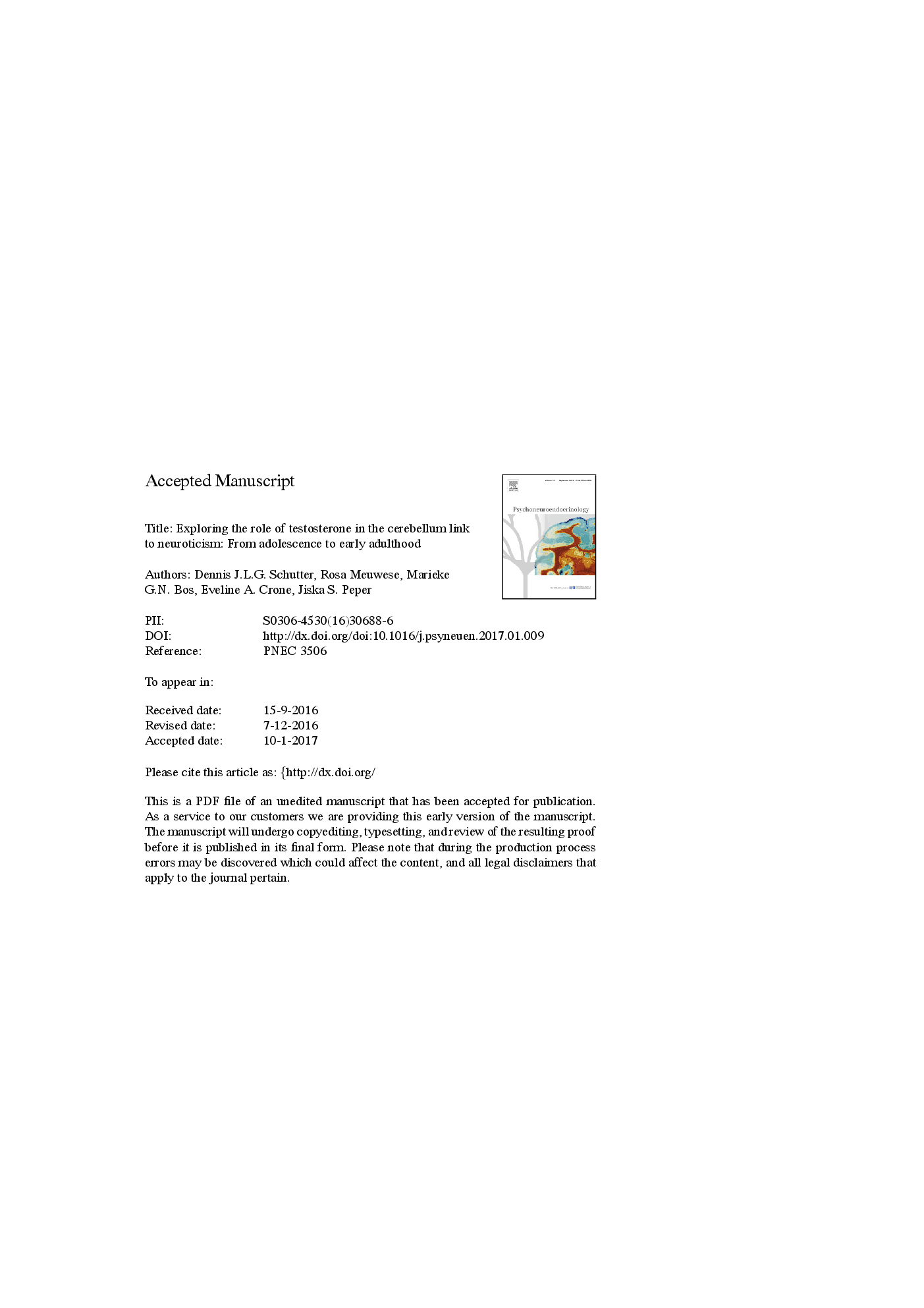ترجمه فارسی عنوان مقاله
بررسی نقش تستوسترون در پیوند مخچه به روانپزشکی: از نوجوانی تا زود رسیدن به سن بلوغ
عنوان انگلیسی
Exploring the role of testosterone in the cerebellum link to neuroticism: From adolescence to early adulthood
| کد مقاله | سال انتشار | تعداد صفحات مقاله انگلیسی |
|---|---|---|
| 128020 | 2017 | 40 صفحه PDF |
منبع

Publisher : Elsevier - Science Direct (الزویر - ساینس دایرکت)
Journal : Psychoneuroendocrinology, Volume 78, April 2017, Pages 203-212

